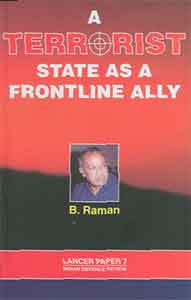US Congressmen have attributed the failure of the US Central Intelligence Agency (CIA) to give advance warnings of the September 11 attacks to its over-focus on technical intelligence (TECHINT) to the detriment of human intelligence (HUMINT). The catastrophic terrorist groups of today, exemplified by the AI Qaida of bin Laden, do not always use modern technologies. For the World Trade Centre bombing in February, 1993, and for the bombings in Nairobi and Dar-es-Salaam in August, 1998, his supporters did not use modern explosives. They used, instead, a large quantity of nitrate fertilisers, which anybody can buy in the market without creating suspicion.
They stick to old communication technologies to avoid detection. Ever since the US bombing of \his training camps in Afghanistan in August 1998, bin Laden has been largely using couriers and avoiding the use of his mobile (satellite) phone lest the Cruise missiles zero in on the phone.
| Editor’s Pick |
Unless the HUMINT capability is stepped up, advance warnings of such catastrophic terrorist acts is going to be increasingly difficult. Like the CIA, the Indian Intelligence Community has also been strong in TECHINT, but weak in HUMINT. Unless this is set right, our preventive capability would be weak.
Catastrophic terrorism demands a multi-agency approach, with all counter-terrorism divisions of various agencies working under a common roof, under common leadership, with a common national purpose. This came into force in other countries many years ago. India has only just now woken up to the need for it.
The networking of the terrorists has not been matched by a networking of the victim-States. There has been a mushrooming of intelligence-sharing mechanisms, but without visible improvement in the ground situation.
Deaths are no longer counted in dozens, but in thousands. Old crisis management drills evolved to meet conventional threats such as hijacking, hostage-taking, etc, will no longer meet the horrendous threats of today.
India’s crisis management was found wanting even during the classic lAC hijacking of December, 1999. Does our security bureaucracy have the capability to prevent catastrophic terrorism and deal competently with the catastrophe, if its preventive mechanism fails? This is a question, which needs urgent attention.
Terrorist networks of today are becoming increasingly autonomous in their functioning with their dependence on their State-sponsors reduced by the easy availability of narcotics dollars and weapons and explosives, which they can buy from the flourishing smugglers’ market with narcotics money.
The non-State actor terrorists of today tend to group together in united fronts in order to assist each other in their operations. Bin Laden’s International Islamic Front for Jehad against the US and Israel brings together nearly a dozen Islamic terrorist organisations of different countries.
Terrorism is an absolute evil and has to be treated as such.
Under such circumstances, a counter proxy war strategy by India has to be directed not only against a State-sponsor such as Pakistan, but also against the various non-State actors operating from Pakistani territory, who may not be totally under its control.
The networking of the terrorists has not been matched by a networking of the victim-States. There has been a mushrooming of intelligence-sharing mechanisms, but without visible improvement in the ground situation.
 An equally important factor has been the lack of a lucid analysis of the dimensions of the new menace and the absence of a political will to strike. One hopes that the present will to take up the challenge posed by the terrorists would not be weakened after some time due to political considerations, as often happens. Terrorism is an absolute evil and has to be treated as such.
An equally important factor has been the lack of a lucid analysis of the dimensions of the new menace and the absence of a political will to strike. One hopes that the present will to take up the challenge posed by the terrorists would not be weakened after some time due to political considerations, as often happens. Terrorism is an absolute evil and has to be treated as such.




